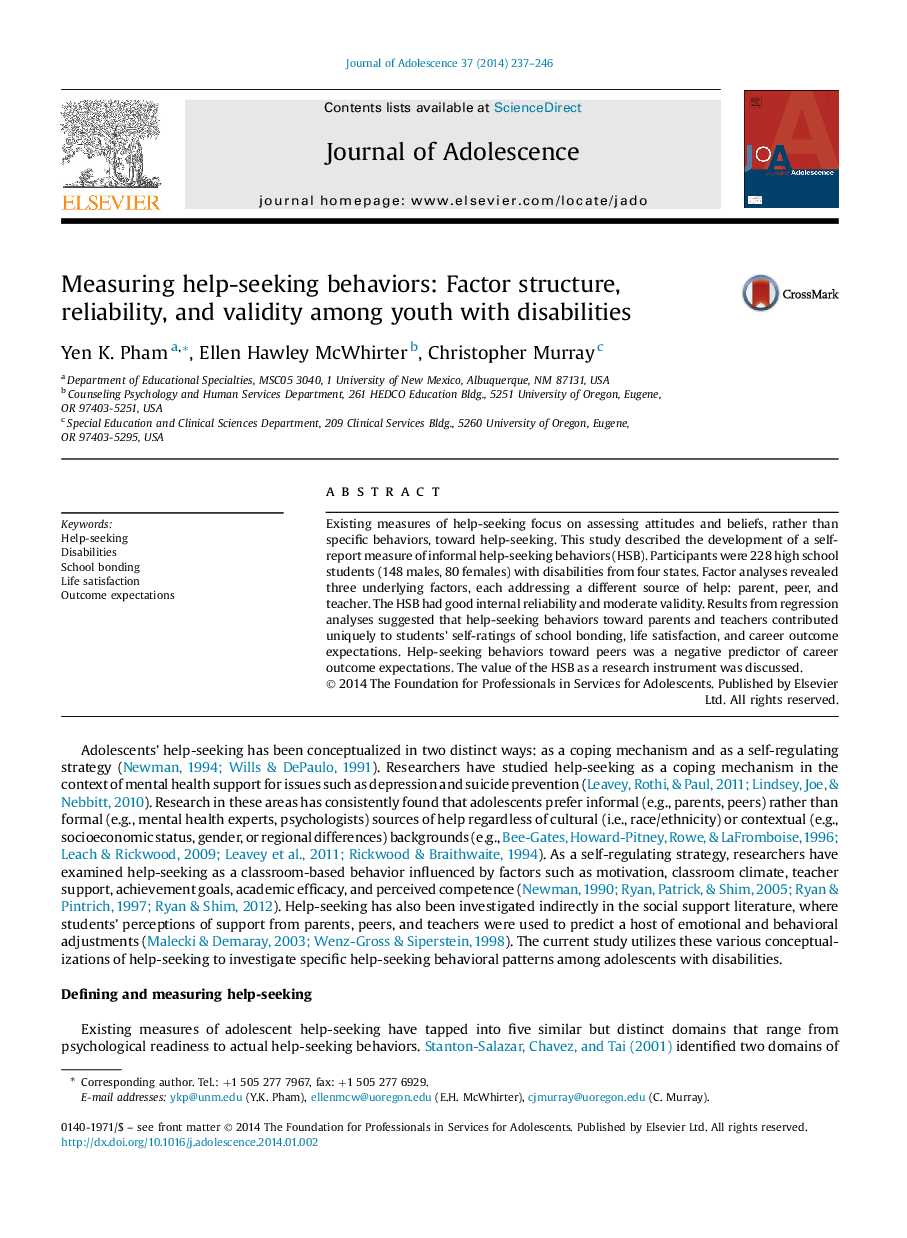| Article ID | Journal | Published Year | Pages | File Type |
|---|---|---|---|---|
| 880857 | Journal of Adolescence | 2014 | 10 Pages |
Existing measures of help-seeking focus on assessing attitudes and beliefs, rather than specific behaviors, toward help-seeking. This study described the development of a self-report measure of informal help-seeking behaviors (HSB). Participants were 228 high school students (148 males, 80 females) with disabilities from four states. Factor analyses revealed three underlying factors, each addressing a different source of help: parent, peer, and teacher. The HSB had good internal reliability and moderate validity. Results from regression analyses suggested that help-seeking behaviors toward parents and teachers contributed uniquely to students' self-ratings of school bonding, life satisfaction, and career outcome expectations. Help-seeking behaviors toward peers was a negative predictor of career outcome expectations. The value of the HSB as a research instrument was discussed.
